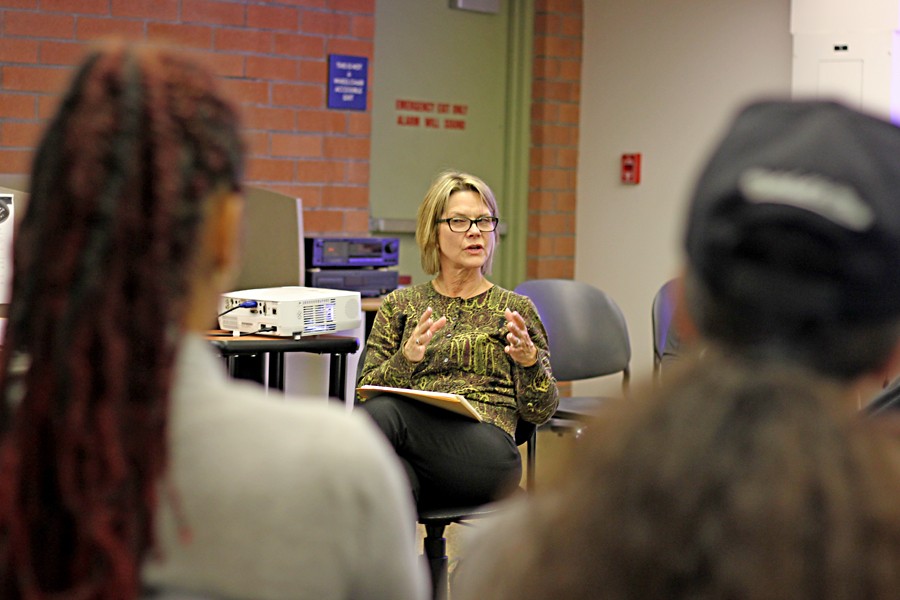Interactive stories highlight resilience, heroism
Women discuss important roles in Vietnam conflict
English assistant professor Heather Roth speaks to students during “The Unfinished Women’s Stories in The Things They Carried” panel discussion in the Media Lab at the Library and Learning Resource Center on Thursday.
Apr 28, 2015
Students, faculty and staff gathered for interactive stories through an open conversation titled “The Unfinished Women’s Stories in The Things They Carried” in the Library Media Lab on Thursday from 4-5:30 p.m. as part of The Big Read.
English professor Heather Roth led the conversation about the women roles in “The Things They Carried,” a collection of short stories about the Vietnam War by Tim O’Brien that touches on trauma and the healing power of writing and of telling one’s story.
“Stories give us opportunities to transform, to change ourselves,” speech professor Sherry Diestler said during the group discussion.
Roth shared Tim O’Brien’s background information and said there are faculty at CCC who served in Vietnam.
She said, “Both generations are communicating” because current students are at the age of those who went to war four plus decades ago during the Vietnam War-era.
Among the attendees was war veteran Aaron Alberto, who shared with everyone a little of himself. He said his family had to flee Laos and Thailand during the war.
The things they carried were not only the tangible things, like a pen or paper, but things such as guilt, which greatly affected and haunted the soldiers, Roth said.
One of the women O’Brien wrote about in “The Things They Carried” was 17-year-old Martha, a college student and the object of affection of another character in the book, lieutenant Jimmy Cross.
The lieutenant pined for this girl, who was not his lover but a friend, clinging to any scrap of anything and letters that reminded him of her.
Roth said the soldiers were “hanging on to anything that would get them through.”
Many of the women in “The Things They Carried” were not physically present with the men, but Roth said it was as if they “pretended” to feel connected in some shape with reality outside of war.
Another of the women Roth discussed was Mary Anne Bell, who came into the story as a timid girl visiting Vietnam amid war, whose life changed drastically after running off into the woods.
Roth said the men used women as a form of escape from their reality, which was war.
Speech department professor Hans Craycraft said Bell symbolized the innocence of the U.S.A. and throughout the story she changed drastically.
Most people in attendance had a special connection with the book, whether it was that they knew someone who had served in the war or were someone in the war themselves.
“Soldiers are in hell, and when they come back they are in hell again,” Diestler said.
Her husband is a Vietnam-era veteran, which allowed for her profound connection with the book.
Breshae Marshal, liberal arts major, said, “It was an eye-opening experience to know what these people went through.”
Roth said the group shared in a “rich discussion” that day.
For some students it was an extra credit assignment, but these individuals were still engaged in the conversation.
“The Things They Censored” is the next Big Read event. It will be held today in L-107 from 5 to 6:30 p.m. and will be led by English professor Haley Kantor.



